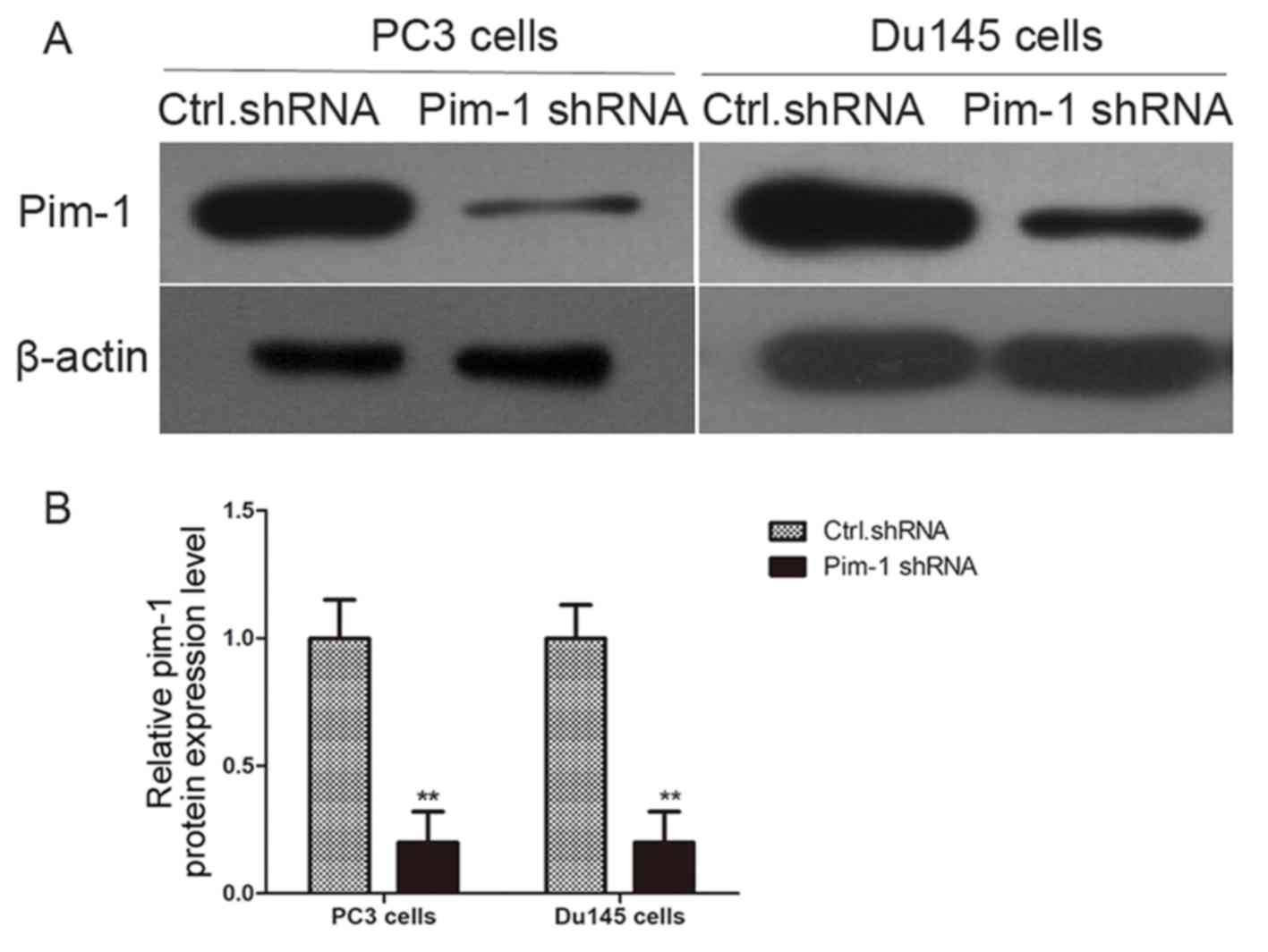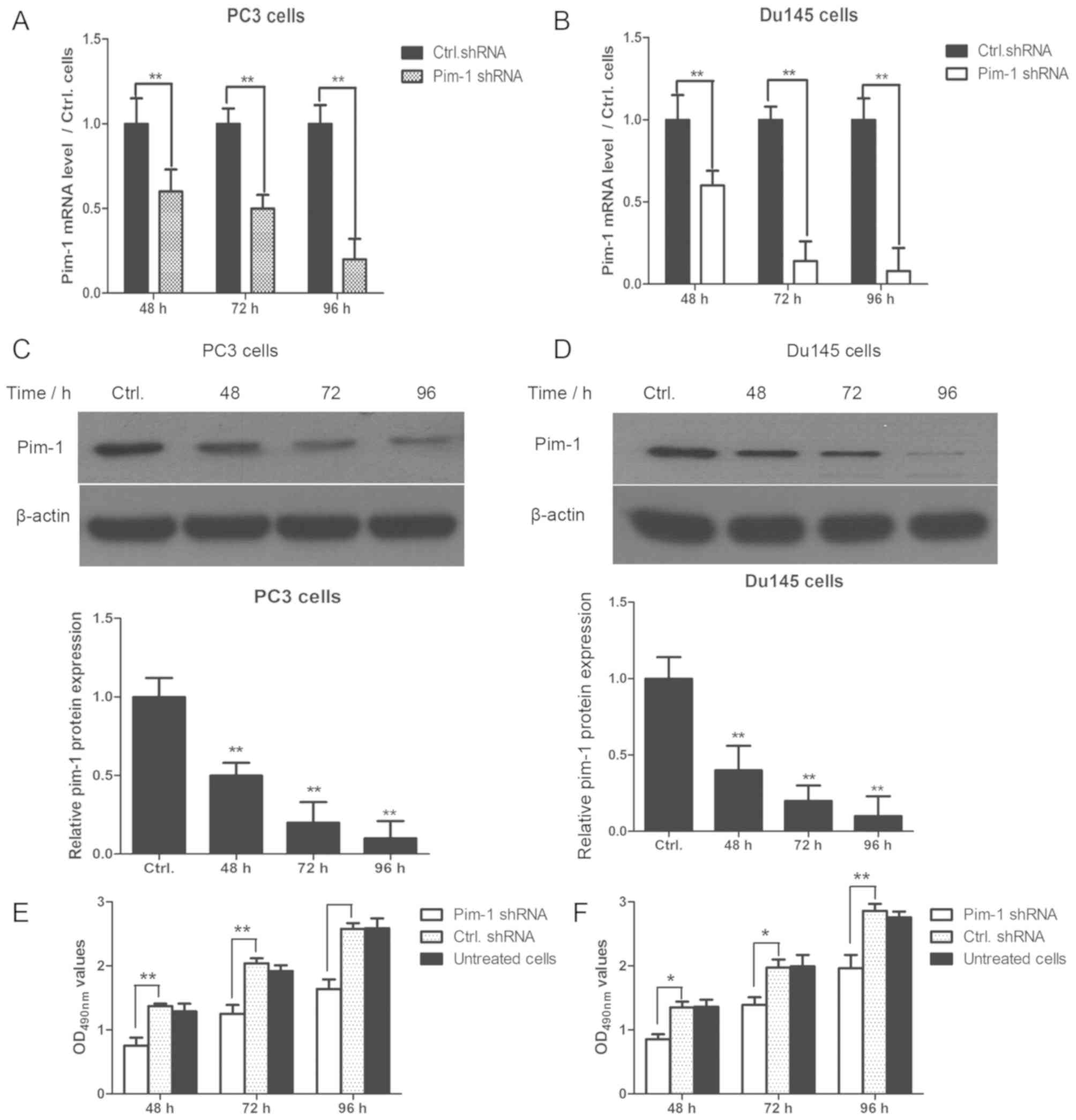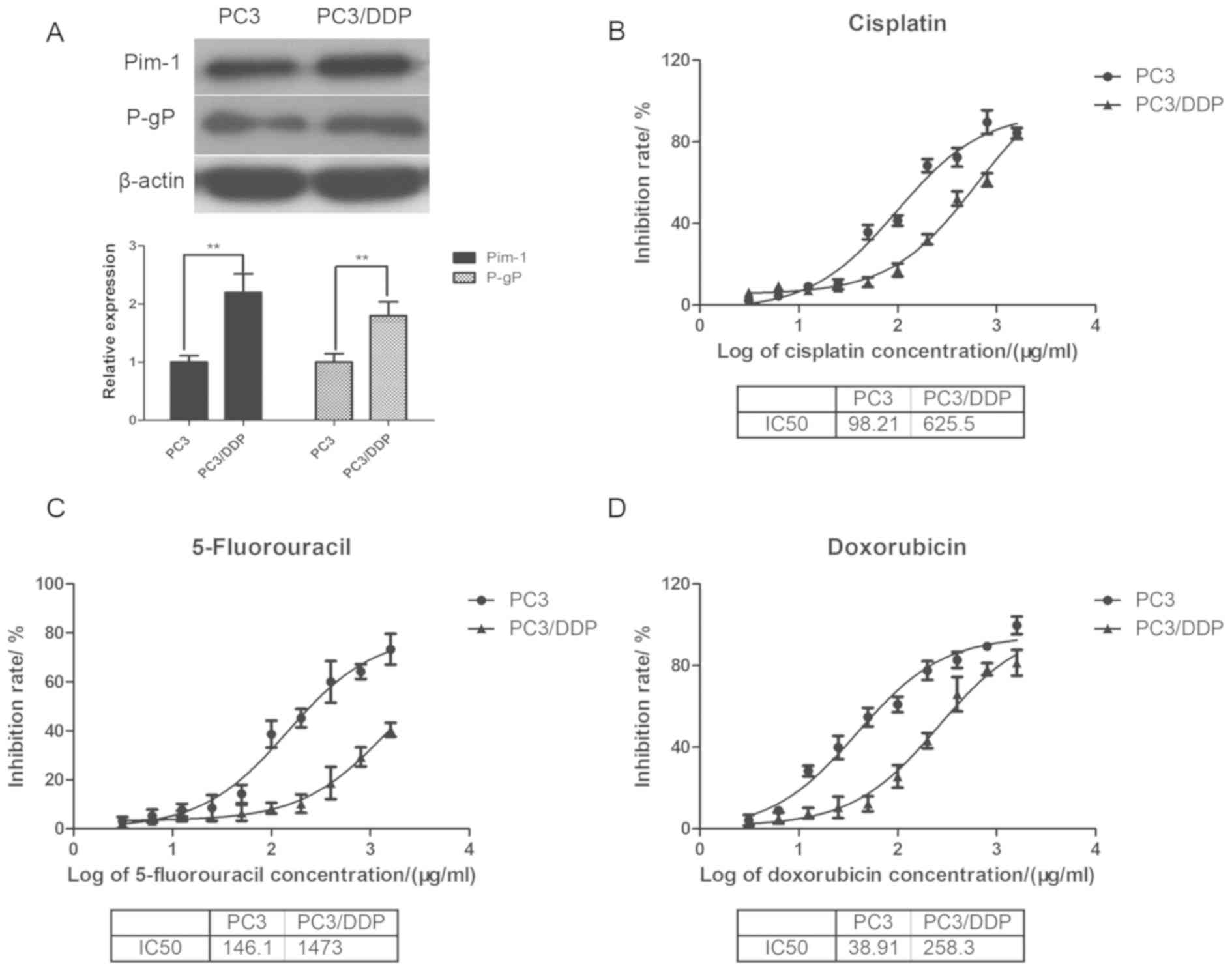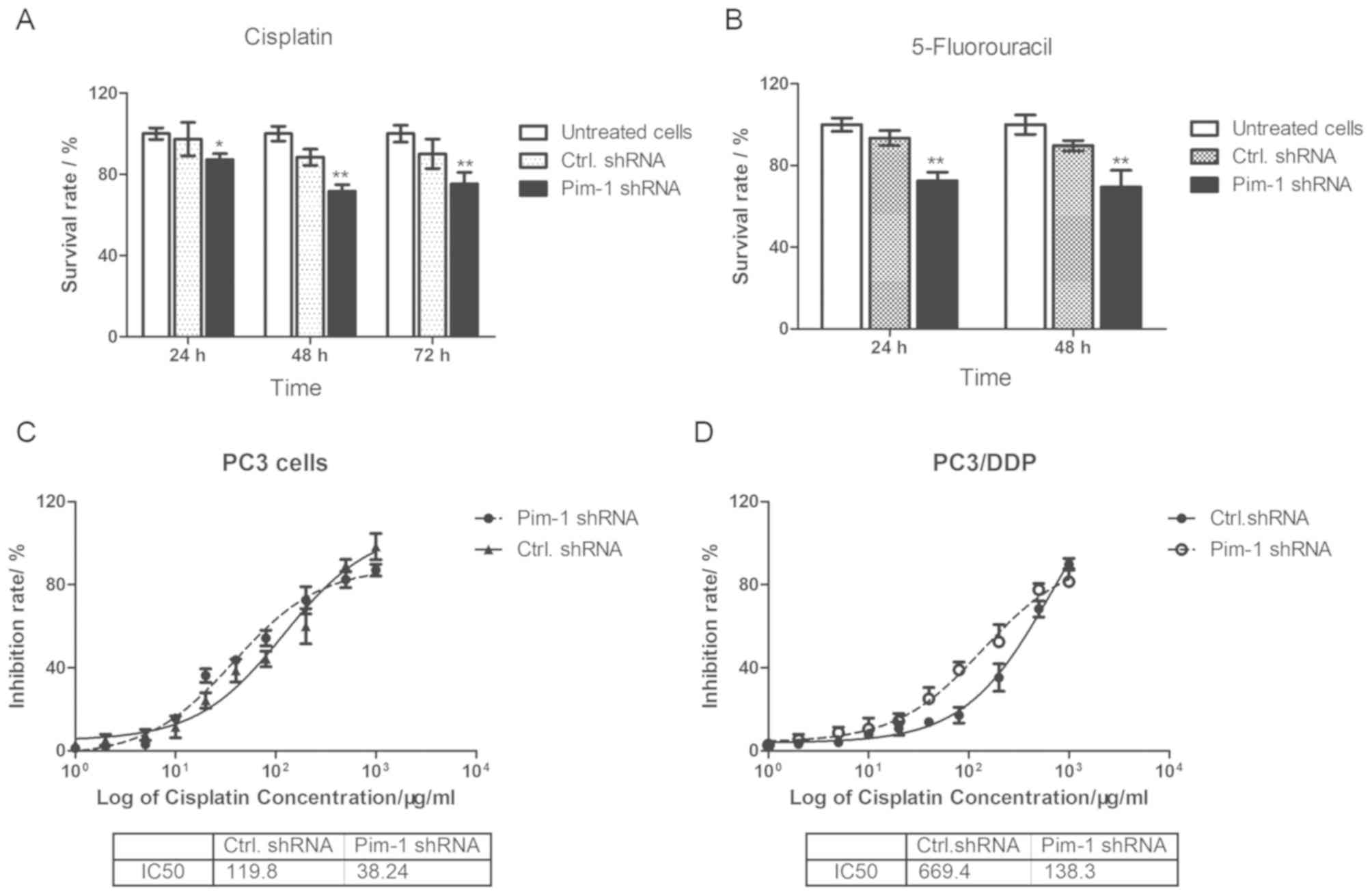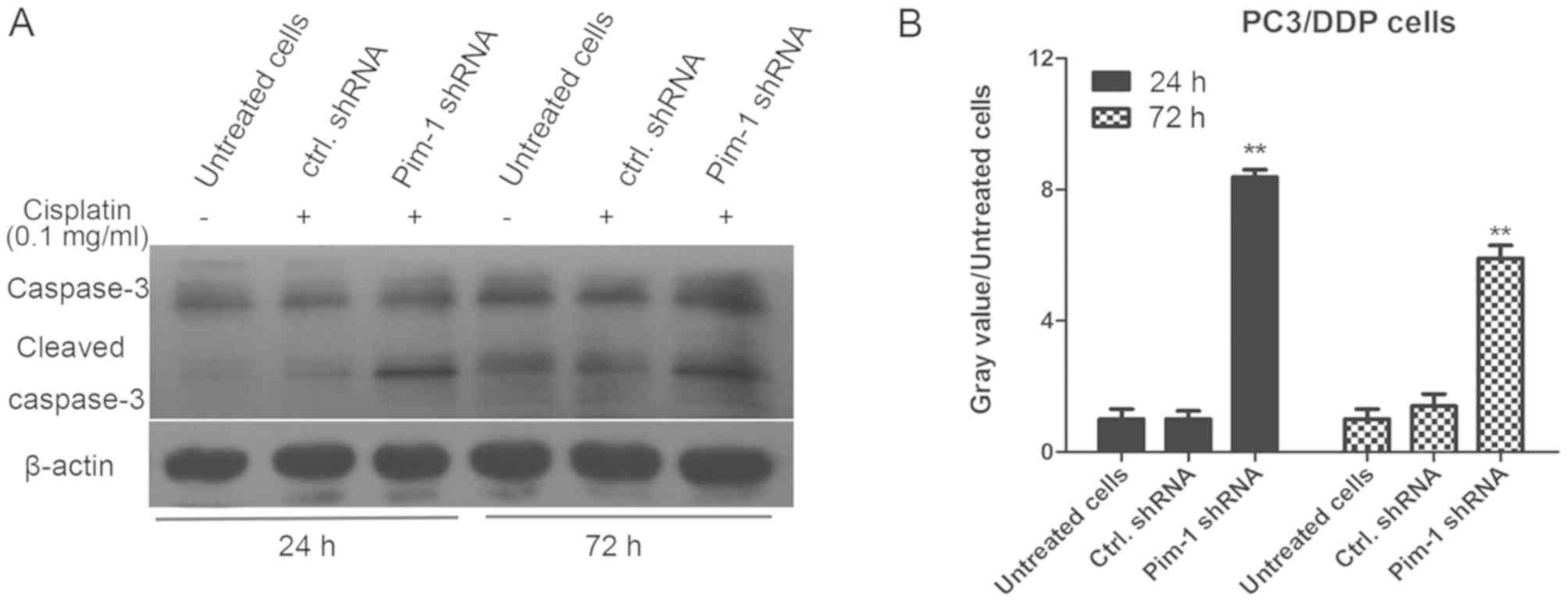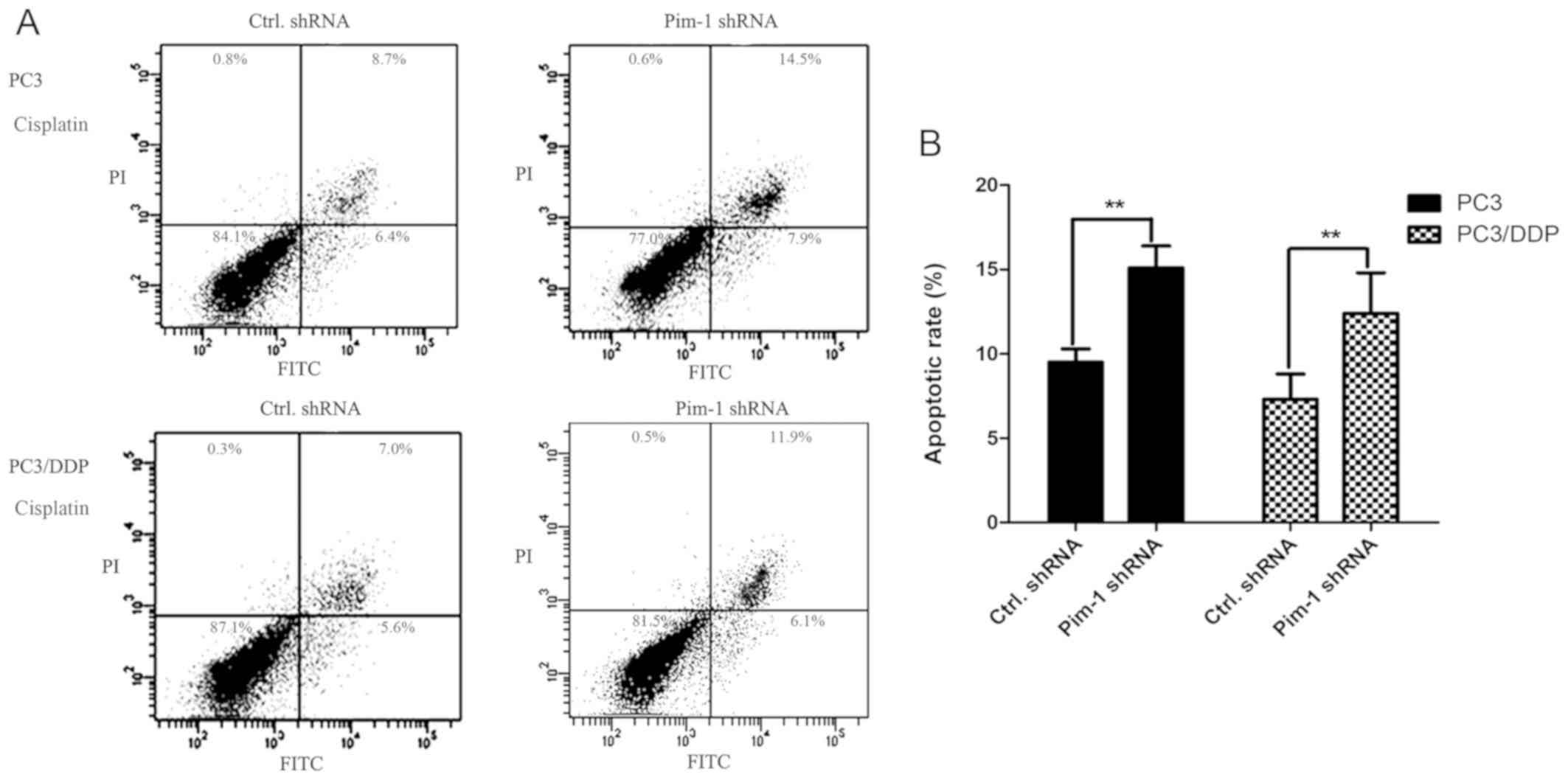|
1
|
Mahmoud AM, Yang W and Bosland MC: Soy
isoflavones and prostate cancer: A review of molecular mechanisms.
J Steroid Biochem Mol Biol. 140:116–132. 2014. View Article : Google Scholar : PubMed/NCBI
|
|
2
|
Ma X, Xiao Z, Li X, Wang F, Zhang J, Zhou
R, Wang J and Liu L: Prognostic role of circulating tumor cells and
disseminated tumor cells in patients with prostate cancer: A
systematic review and meta-analysis. Tumour Biol. 35:5551–5560.
2014. View Article : Google Scholar : PubMed/NCBI
|
|
3
|
Nevedomskaya E, Baumgart SJ and Haendler
B: Recent advances in prostate cancer treatment and drug discovery.
Int J Mol Sci. 19:E13592018. View Article : Google Scholar : PubMed/NCBI
|
|
4
|
Eisenberger M: Research in drug
development for advanced prostate cancer. Clin Adv Hematol Oncol.
16:42–44. 2018.PubMed/NCBI
|
|
5
|
González Á, García de Durango C, Alonso V,
Bravo B, Rodríguez de Gortázar A, Wells A, Forteza J and
Vidal-Vanaclocha F: Distinct osteomimetic response of
androgen-dependent and independent human prostate cancer cells to
mechanical action of fluid flow: Prometastatic implications.
Prostate. 77:321–333. 2017. View Article : Google Scholar : PubMed/NCBI
|
|
6
|
Williams RM, Hajiran CJ, Nayeem S and
Sooter LJ: Identification of an antibody fragment specific for
androgen-dependent prostate cancer cells. BMC Biotechnol.
14:812014. View Article : Google Scholar : PubMed/NCBI
|
|
7
|
Zhang C, Li P, Wen Y, Feng G, Liu Y, Zhang
Y, Xu Y and Zhang Z: The promotion on cell growth of
androgen-dependent prostate cancer by antimony via mimicking
androgen activity. Toxicol Lett. 288:136–142. 2018. View Article : Google Scholar : PubMed/NCBI
|
|
8
|
Li K, Li Y, Zhou D, Fan Y, Guo H, Ma T,
Wen J, Liu D and Zhao L: Synthesis and biological evaluation of
quinoline derivatives as potential anti-prostate cancer agents and
Pim-1 kinase inhibitors. Bioorg Med Chem. 24:1889–1897. 2016.
View Article : Google Scholar : PubMed/NCBI
|
|
9
|
Kim JE, Son JE, Jeong H, Joon Kim D, Seo
SK, Lee E, Lim TG, Kim JR, Chen H, Bode AM, et al: A novel
cinnamon-related natural product with Pim-1 inhibitory activity
inhibits leukemia and skin cancer. Cancer Res. 75:2716–2728. 2015.
View Article : Google Scholar : PubMed/NCBI
|
|
10
|
Wang J, Li G, Li B, Song H, Shang Z, Jiang
N and Niu Y: Androgen deprivation therapy has no effect on Pim-1
expression in a mouse model of prostate cancer. Oncol Lett.
13:4364–4370. 2017. View Article : Google Scholar : PubMed/NCBI
|
|
11
|
Tamura RE, de Luna IV, Lana MG and Strauss
BE: Improving adenoviral vectors and strategies for prostate cancer
gene therapy. Clinics (Sao Paulo). 73 (Suppl 1):e476s2018.
View Article : Google Scholar : PubMed/NCBI
|
|
12
|
Grozescu T and Popa F: Immunotherapy and
gene therapy in prostate cancer treatment. J Med Life. 10:54–55.
2017.PubMed/NCBI
|
|
13
|
Souza AG, Bastos VAF, Silva IBB, Marangoni
K and Goulart VA: Different gene therapy strategies: A overview for
prostate cancer. Curr Gene Ther. 16:287–291. 2016. View Article : Google Scholar : PubMed/NCBI
|
|
14
|
Cai Z, Lv H, Cao W, Zhou C, Liu Q, Li H
and Zhou F: Targeting strategies of adenovirusmediated gene therapy
and virotherapy for prostate cancer (Review). Mol Med Rep.
16:6443–6458. 2017. View Article : Google Scholar : PubMed/NCBI
|
|
15
|
Livak KJ and Schmittgen TD: Analysis of
relative gene expression data using real-time quantitative PCR and
the 2(-Delta Delta C(T)) method. Methods. 25:402–408. 2001.
View Article : Google Scholar : PubMed/NCBI
|
|
16
|
Abel SDA and Baird SK: Honey is cytotoxic
towards prostate cancer cells but interacts with the MTT reagent:
Considerations for the choice of cell viability assay. Food Chem.
241:70–78. 2018. View Article : Google Scholar : PubMed/NCBI
|
|
17
|
Kumar P, Nagarajan A and Uchil PD:
Analysis of cell viability by the MTT Assay. Cold Spring Harb
Protoc 2018. 2018. View Article : Google Scholar
|
|
18
|
Ma S, Tan W, Du B, Liu W, Li W, Che D and
Zhang G: Oridonin effectively reverses cisplatin drug resistance in
human ovarian cancer cells via induction of cell apoptosis and
inhibition of matrix metalloproteinase expression. Mol Med Rep.
13:3342–3348. 2016. View Article : Google Scholar : PubMed/NCBI
|
|
19
|
Tian J, Liu R and Qu Q: Role of
endoplasmic reticulum stress on cisplatin resistance in ovarian
carcinoma. Oncol Lett. 13:1437–1443. 2017. View Article : Google Scholar : PubMed/NCBI
|
|
20
|
Swellmeen L, Shahin R, Al-Hiari Y, Alamiri
A, Hasan A and Shaheen O: Structure based drug design of Pim-1
kinase followed by pharmacophore guided synthesis of
quinolone-based inhibitors. Bioorg Med Chem. 25:4855–4875. 2017.
View Article : Google Scholar : PubMed/NCBI
|
|
21
|
Wu J, Zhang Q, Wuu YR, Zou S and Hei TK:
Cytoplasmic irradiation induces metabolic shift in human small
airway epithelial cells via activation of Pim-1 kinase. Radiat Res.
187:441–453. 2017. View Article : Google Scholar : PubMed/NCBI
|
|
22
|
Etheridge T, Liou J, Downs TM, Abel EJ,
Richards KA and Jarrard DF: The impact of celecoxib on outcomes in
advanced prostate cancer patients undergoing androgen deprivation
therapy. Am J Clin Exp Urol. 6:123–132. 2018.PubMed/NCBI
|
|
23
|
Thamilselvan V, Menon M, Stein GS,
Valeriote F and Thamilselvan S: Combination of carmustine and
selenite inhibits EGFR mediated growth signaling in
androgen-independent prostate cancer cells. J Cell Biochem.
118:4331–4340. 2017. View Article : Google Scholar : PubMed/NCBI
|
|
24
|
Cha S, Shin DH, Seok JR and Myung JK:
Differential proteome expression analysis of androgen-dependent and
-independent pathways in LNCaP prostate cancer cells. Exp Cell Res.
359:215–225. 2017. View Article : Google Scholar : PubMed/NCBI
|
|
25
|
Xu J, Xiong G, Cao Z, Huang H, Wang T, You
L, Zhou L, Zheng L, Hu Y, Zhang T and Zhao Y: PIM-1 contributes to
the malignancy of pancreatic cancer and displays diagnostic and
prognostic value. J Exp Clin Cancer Res. 35:1332016. View Article : Google Scholar : PubMed/NCBI
|
|
26
|
Liu Z, Liu H, Yuan X, Wang Y, Li L, Wang
G, Song J, Shao Z and Fu R: Downregulation of Pim-2 induces cell
cycle arrest in the G0/G1 phase via the p53-non-dependent p21
signaling pathway. Oncol Lett. 15:4079–4086. 2018.PubMed/NCBI
|
|
27
|
Tursynbay Y, Zhang J, Li Z, Tokay T,
Zhumadilov Z, Wu D and Xie Y: Pim-1 kinase as cancer drug target:
An update. Biomed Rep. 4:140–146. 2016. View Article : Google Scholar : PubMed/NCBI
|
|
28
|
Ouhtit A, Muzumdar S, Gupta I,
Shanmuganathan S and Tamimi Y: Understanding the functional
discrepancy of Pim-1 in cancer. Front Biosci (Elite Ed). 7:208–214.
2015.PubMed/NCBI
|
|
29
|
Jiang W, Chen Y, Song X, Shao Y, Ning Z
and Gu W: Pim-1 inhibitor SMI-4a suppresses tumor growth in
non-small cell lung cancer via PI3K/AKT/mTOR pathway. OncoTargets
Ther. 12:3043–3050. 2019. View Article : Google Scholar
|
|
30
|
Ma X, Hu M, Wang H and Li J: Discovery of
traditional Chinese medicine monomers and their synthetic
intermediates, analogs or derivatives for battling P-gp-mediated
multi-drug resistance. Eur J Med Chem. 159:381–392. 2018.
View Article : Google Scholar : PubMed/NCBI
|















